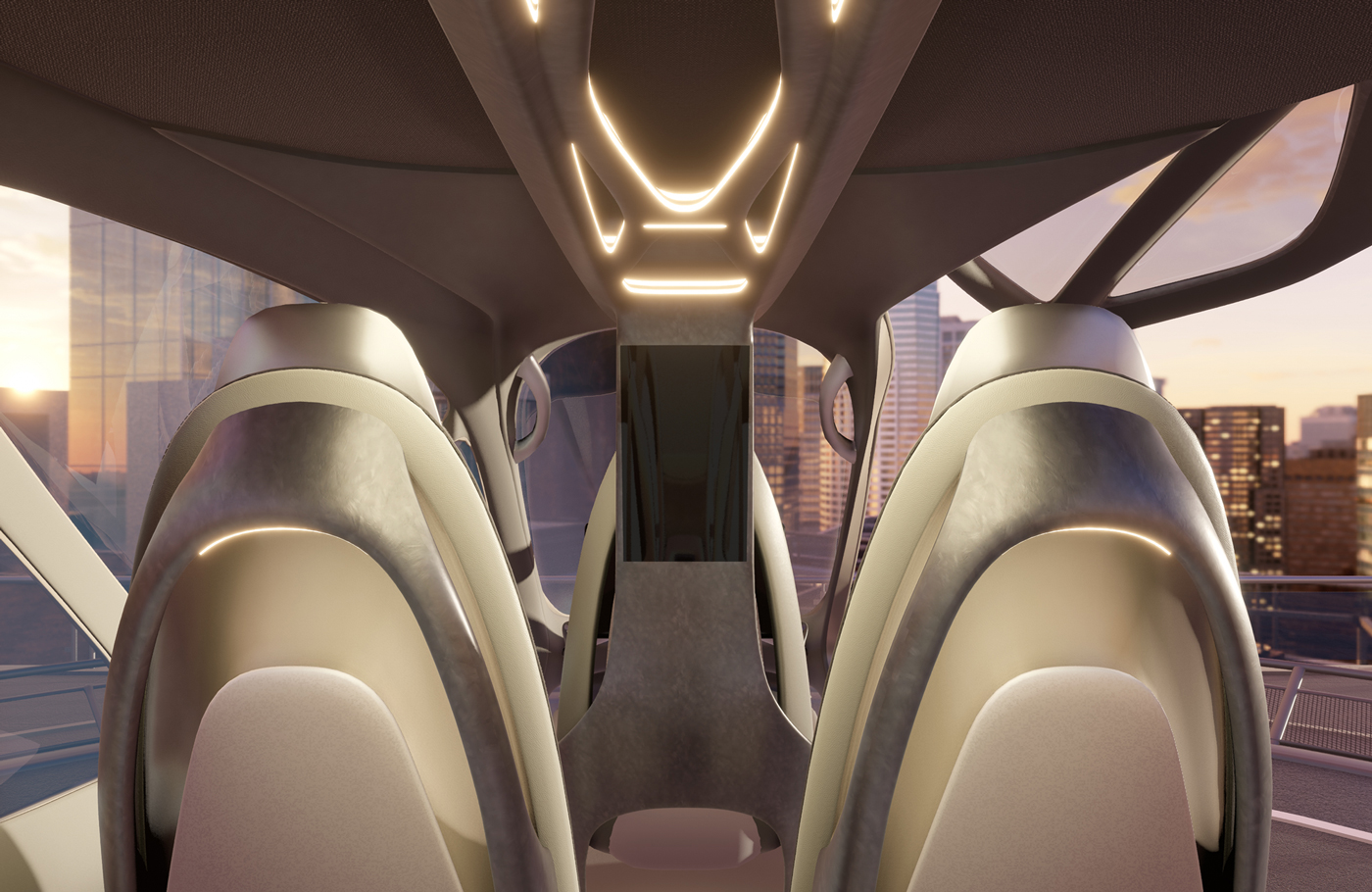Hyundai: building roads in sky
Hyundai: building roads in sky
Supernal, part of Hyundai Motor Group, has revealed its electric vertical take-off and landing (eVTOL) vehicle cabin concept.
The futuristic vehicle – which was shown at the Farnborough International Airshow – gives an inkling of how Hyundai Motor Group is integrating automotive capabilities to develop the Advanced Air Mobility (AAM) market. It also shows how Hyundai is developing commercial urban and regional air vehicles.
The eVTOL vehicle will commence commercial use in the United States in 2028, followed shortly after in the EU and UK. Supernal is collaborating with external partners and Hyundai’s more than 50 affiliates – spanning automobiles, automotive parts, construction, robotics, and autonomous driving – to responsibly co-create the expansive AAM value chain.

“In order for Advanced Air Mobility to become a widespread mode of transportation, every detail – from the passenger experience to regulations and infrastructure – needs to be addressed from the start and work in lockstep with one another,” says Jaiwon Shin, president of Hyundai Motor Group and CEO of Supernal. “We are taking the time to create a safe, lightweight commercial eVTOL that provides our future passengers with the security and comfort they find in their own cars.”
Harnessing automotive design
The design of Supernal’s five-seat cabin concept is said to embody a biomimicry philosophy – a butterfly in this case – and Hyundai’s pillars of safety.
The team of engineers and designers utilised the automotive industry’s reductive design approach to create the lightweight interior cabin, which is made of forged carbon fibre. Ergonomically contoured seats offer a cocoon-like environment for passengers. Deployable seat consoles mimic automobile centre consoles and provide a charging station and stowage compartment for personal items. Grab handles built into the cabin doors and seatbacks assist with ingress and egress. A combination of lighting – including overhead lights inspired by automobile sunroofs – adjusts with the various stages of flight to emulate a “light therapy” effect. The cabin layout draws on automotive space innovation with a minimised bulkhead, which allows for generous headroom and package functionalities.
With sustainability as a priority, the cabin concept incorporates materials such as advanced recyclable carbon fibre-reinforced thermoplastic, durable plant-based leather, recycled plastic fabric, and responsibly sourced woods. The seat frame also utilises excess raw material from the airframe manufacturing process.
“The Supernal eVTOL vehicle draws on the competence of the Hyundai Motor Group and the skillset of experienced automotive designers, which allowed us to develop a new air mobility concept that is not only safe and rational but also highly emotional,” says Luc Donckerwolke, chief creative officer of Hyundai Motor Group.
Developing air mobility beyond urban markets
The Group is leveraging its expansive mobility and mobility-enabling capabilities to develop a family of electric air vehicles, as well as the surrounding value chain.
Hyundai’s Korea-based Regional Air Mobility Division is developing a hydrogen-powered mid-sized vehicle for regional (city-to-city) cargo and passenger journeys. The launch of the hydrogen vehicle is planned for the 2030s.
The aim is to produce electric air vehicles at scale – at an increasingly affordable price point – over the coming decades.
“Hyundai Motor Group is working to leverage synergies between automotive’s high-rate manufacturing capabilities and aerospace’s high certification standards to build the foundation for everyday use of passenger and cargo air vehicles,” Shin concludes.
Published by
Focus on Transport
focusmagsa








